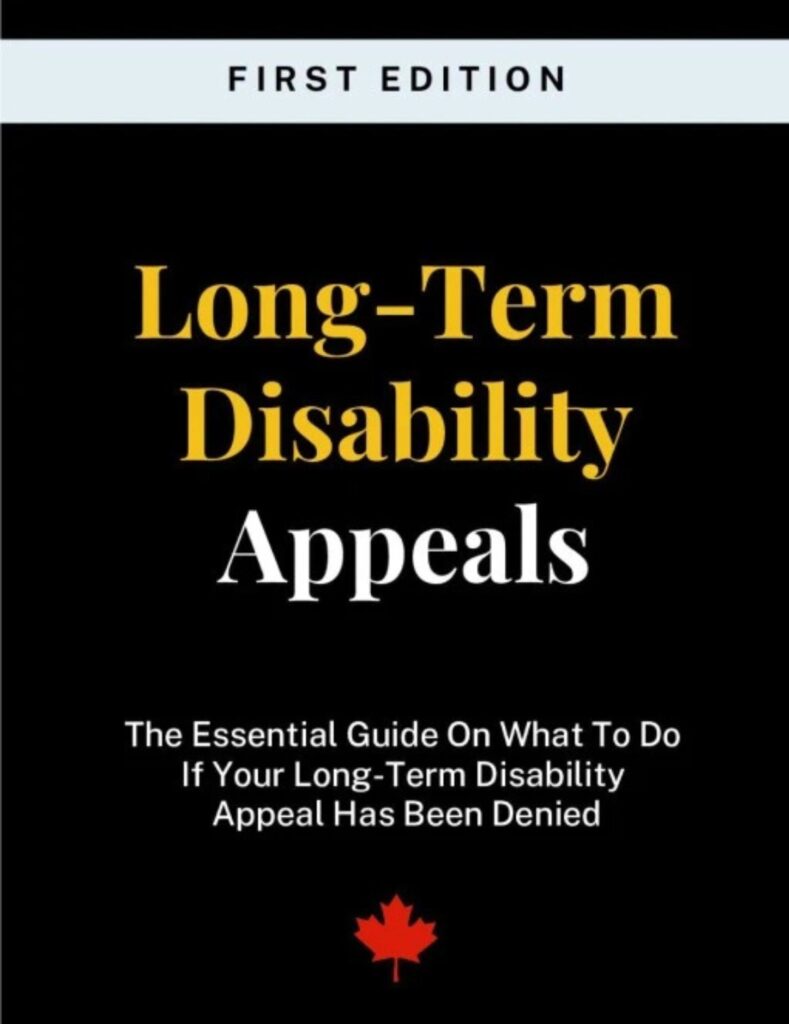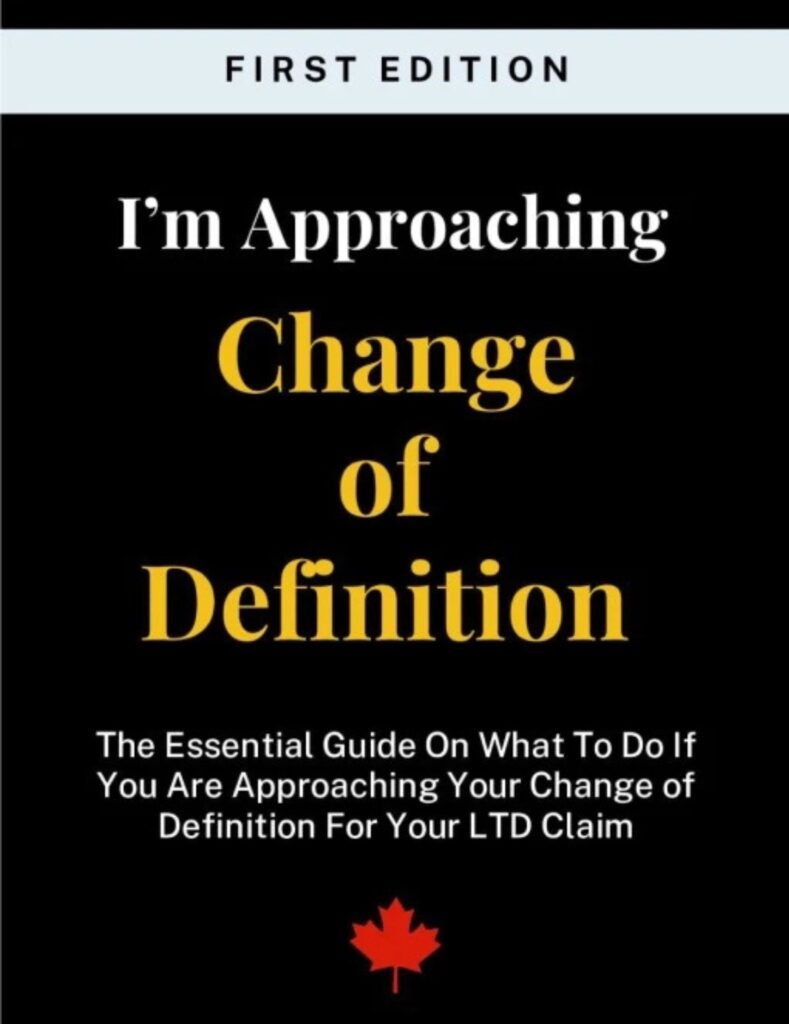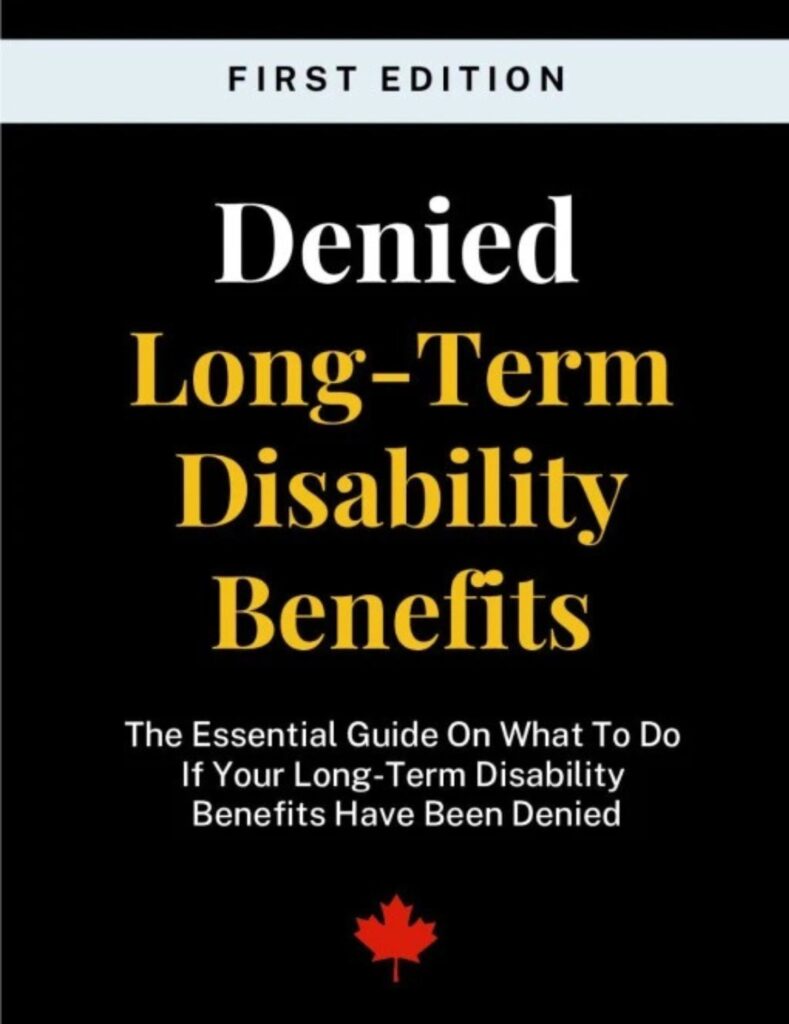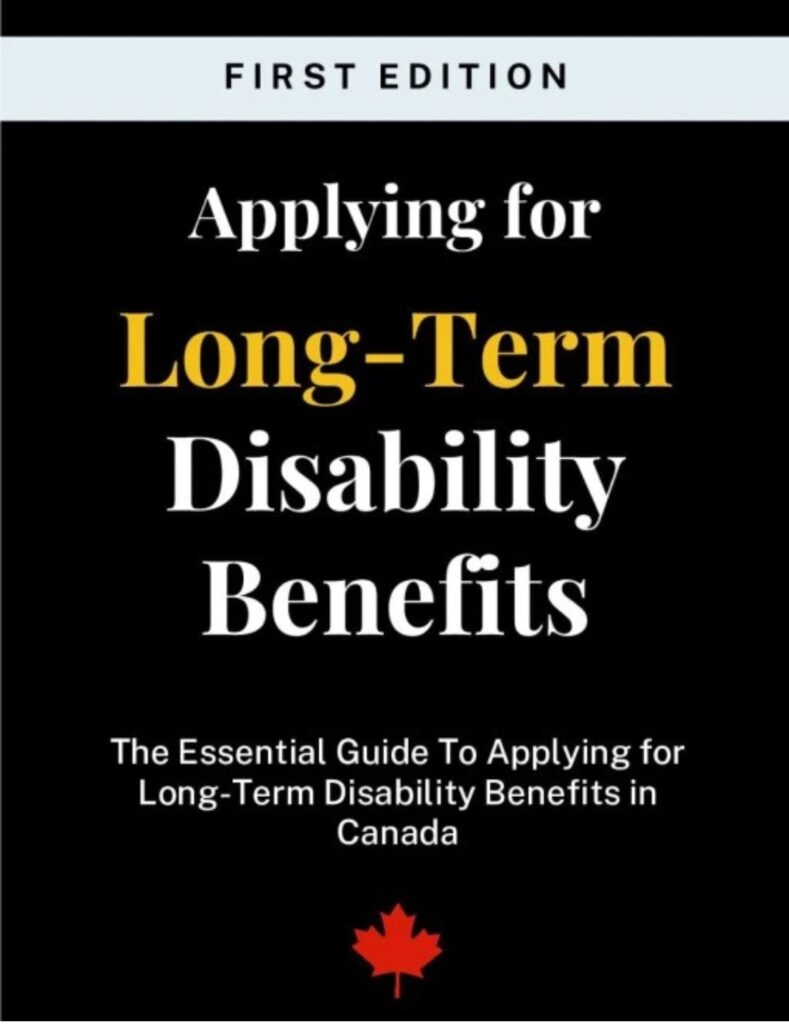Ottawa Long Term Disability Lawyer
Find out if you have a case today.
Contact our Ottawa long-term disability lawyers for a free consultation if you have legal questions regarding your long-term disability claim.
Table of Contents
When health problems keep you from working, you may worry about how to support yourself and your family. Insurance companies sometimes make matters worse by delaying or denying benefits that people rely on. If you need long-term disability support in Ottawa, or if your claim has already been denied, an Ottawa long-term disability lawyer from Preszler Injury Lawyers can step in to help.
Long-term disability (LTD) benefits are supposed to provide monthly income replacement when illness or injury prevents you from working. Yet, many people struggle with the claims process, policy terms, and insurance company tactics.
Preszler Injury Lawyers has helped countless individuals pursue long-term disability benefits. Whether you live in Kanata, Orleans, Nepean, Barrhaven, or Ottawa, our team is available to review your policy, explain your rights, and take action against insurance companies that refuse to pay. Contact us today for a free consultation and learn how we can help protect your future.
What Are Long-Term Disability Benefits in Canada?
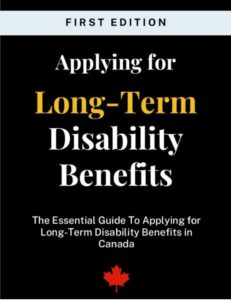 Long-term disability benefits provide income replacement when medical conditions prevent someone from working for an extended period. Several different programs or insurance systems may be available, depending on your situation.
Long-term disability benefits provide income replacement when medical conditions prevent someone from working for an extended period. Several different programs or insurance systems may be available, depending on your situation.
Employment Insurance Sickness Benefits vs. Private LTD Insurance
Employment Insurance (EI) sickness benefits offer short-term relief, usually for up to 26 weeks. They are designed for temporary illnesses or injuries. Long-term disability benefits through a private insurance policy, whether purchased individually or offered by your employer, provide coverage for a much longer period. Private LTD coverage usually replaces a percentage of your income until you can return to work or reach retirement age.
Canada Pension Plan Disability Benefits (CPP-D)
CPP Disability benefits are available to workers who have contributed enough to the Canada Pension Plan and who meet the program’s strict definition of disability. CPP-D often works alongside private LTD coverage. Many insurance policies even require you to apply for CPP-D because any amount received may reduce what the insurer pays.
Provincial Disability Support Programs in Ontario
Ontario also provides support through the Ontario Disability Support Program (ODSP). This provincial program assists residents with severe disabilities who meet financial eligibility criteria. ODSP may cover basic living expenses and healthcare needs. Unlike private LTD benefits, ODSP is government-funded rather than tied to an insurance contract.
LET US PUT OUR EXPERTISE TO WORK FOR YOU
Tell Us What Happened
Since 1959, we’ve helped thousands of Canadians get the compensation they deserve with their long-term disability claims. One of Canada’s oldest personal injury law firms, personal injury law is exclusively what we do. Book a free consultation today with our top-rated personal injury lawyers.
Our team is available 24/7 to speak with you.

Understanding Your Long-Term Disability Policy
Insurance policies are filled with terms and conditions that determine eligibility and payment. Knowing how these provisions work helps you anticipate possible obstacles.
Key Terms and Definitions in LTD Policies
Policies often define disability, occupation, and income replacement in very specific ways. For example, “disability” might mean an inability to perform the essential duties of your own occupation for the first two years, shifting later to “any occupation” definition. Small wording differences have a major impact on your eligibility.
Pre-Existing Condition Clauses
Insurers often deny claims by pointing to pre-existing condition clauses. These provisions allow insurers to deny benefits if your disability relates to a medical issue that existed before coverage began. Careful review of medical records and policy wording often reveals whether the insurer is applying this clause fairly.
Elimination Periods and Benefit Periods
Most policies have an elimination period, sometimes called a waiting period, before benefits begin. This period may last 90 or 120 days. The benefit period refers to how long payments continue, which could be a fixed number of years or until age 65.
Own Occupation vs. Any Occupation Coverage
Own occupation coverage means you qualify for benefits if you can’t perform your current job. After a set time, usually two years, the definition often changes to any occupation coverage. At that point, the insurer may argue you can work in a different role, even if it pays far less. This shift is one of the most common reasons insurance companies stop paying.
What Qualifies as a Disability Under Canadian Law?
Disability under Canadian law doesn’t have one universal definition. The meaning changes depending on the program or policy. However, certain standards guide most LTD claims.
Medical Evidence Requirements
You must present medical evidence showing that your condition prevents you from working. This usually includes physician reports, specialist evaluations, test results, and detailed treatment notes. A well-supported medical file often determines the success of a claim.
Substantial Gainful Activity Test
Many policies and government programs apply the concept of “substantial gainful activity.” This test looks at whether you can perform work that provides meaningful income. If you cannot, you may qualify for disability benefits.
Mental Health vs. Physical Disability Claims
Insurance companies often dispute mental health claims more aggressively than physical ones. Depression, anxiety, PTSD, and other conditions may be dismissed as less disabling, even when they prevent someone from functioning in the workplace. Strong medical records from psychiatrists, psychologists, or therapists help demonstrate the impact of mental health conditions.
Chronic Pain and Invisible Disabilities
Conditions like fibromyalgia, chronic fatigue syndrome, or other pain-related illnesses often lead to disputes. Because these conditions may not show up on standard medical tests, insurers sometimes argue that the person can still work. Detailed treatment notes and consistent medical support are critical in these cases.
Common Reasons Long-Term Disability Claims Are Denied
Insurance companies use many tactics to reject or cut off benefits. Understanding common reasons for denial helps you prepare.
Insufficient Medical Documentation
Insurers often claim that medical evidence doesn’t prove disability. They may say treatment notes lack detail or that tests don’t show objective findings. Lawyers often work with doctors to ensure records address policy requirements.
Surveillance and Social Media Investigations
Insurers sometimes hire investigators to follow claimants, hoping to capture video that contradicts their reported limitations. They also monitor social media accounts. Even harmless photos can be misrepresented by insurers to deny claims.
Independent Medical Examinations (IMEs)
Insurance companies often send claimants to their own doctors for an Independent Medical Examination. These doctors may downplay the severity of your condition. Having legal representation during this process helps protect your rights.
Policy Interpretation Disputes
Insurers may twist policy language to justify a denial. For example, they may argue your condition doesn’t meet their definition of disability or that exclusions apply. Lawyers challenge these interpretations in court if necessary.
How Do You Appeal a Denied LTD Claim in Ontario?
If your LTD claim is denied, you don’t have to accept the insurance company’s decision. There are several options for appealing a long-term disability claim.
Internal Appeal Process with Insurance Companies
Insurers often offer an internal review or appeal. This involves submitting additional documents and waiting for the company to reconsider. Success rates in internal appeals are generally low because the same company reviewing your claim makes the decision.
External Appeal Options Through Ombudsman Services
Some claimants turn to the OmbudService for Life and Health Insurance (OLHI). This free service investigates complaints against insurers. While not legally binding, an OLHI recommendation may pressure insurers to reconsider.
Court Proceedings and Litigation Timelines
Many people pursue litigation when insurers refuse to act fairly. Court proceedings allow a judge to decide if benefits should be paid. Lawsuits may take time, but they often pressure insurers into reasonable settlements before trial.
Statute of Limitations for LTD Claims in Ontario
Ontario law limits how long you have to sue an insurer after a denial. Generally, you must file within two years of the denial date. Missing this deadline can permanently block your claim.
How Our Attorneys Can Help
 Legal support makes a major difference in LTD claims. Preszler Injury Lawyers offers comprehensive services for claimants in Ottawa.
Legal support makes a major difference in LTD claims. Preszler Injury Lawyers offers comprehensive services for claimants in Ottawa.
Comprehensive Policy Review and Analysis
Our attorneys review every clause, exclusion, and definition in your policy. We identify the strongest arguments for coverage and prepare strategies to counter insurer objections.
Medical Evidence Gathering and Organization
We work directly with your healthcare providers to gather detailed records, specialist reports, and test results. Organizing this evidence helps prove your eligibility for benefits.
Negotiation with Insurance Companies
We handle communication with insurers, preventing adjusters from using pressure tactics. Our team pushes for fair outcomes based on the evidence.
Representation in Appeals and Court Proceedings
If insurers refuse to cooperate, we represent you in appeals and litigation. We handle the legal process so you can focus on your health.
Coordination with Healthcare Providers
We stay in touch with your doctors to ensure their reports fully support your claim. Clear and consistent medical support often makes the difference.
Protection Against Insurance Company Tactics
Insurers have entire teams working to deny claims. We balance the scales by protecting you from unfair practices and holding insurers accountable.
The Importance of Legal Representation Early in Your Claim
Getting legal help early can prevent mistakes and strengthen your case.
Avoiding Common Mistakes That Jeopardize Claims
Many claimants unintentionally weaken their case by giving vague answers on forms, missing deadlines, or failing to provide complete medical evidence. We help you avoid those pitfalls.
Understanding Settlement Negotiations
Insurers sometimes offer settlements instead of ongoing monthly benefits. We review these offers carefully to make sure they reflect the true value of your claim.
Protecting Your Rights Throughout the Process
From the first application to litigation, we stand by your side. Insurance companies look out for their bottom line; we look out for you.
What Should You Expect During the LTD Claims Process?
Knowing the steps in advance helps you prepare for what lies ahead.
Initial Application Requirements
When you first apply, you’ll need to submit claim forms, medical records, and employment details. The insurer will review your application against the policy terms. Missing or incomplete information often slows the process, so you must be accurate from the start.
Ongoing Medical Assessments and Reporting
Once benefits begin, insurers usually require periodic updates. Your doctors may need to provide progress reports, test results, or treatment plans. These reports help confirm that your medical condition continues to prevent you from working.
Return-to-Work Programs and Vocational Rehabilitation
Some insurers pressure claimants into return-to-work programs or vocational assessments. While these programs sometimes help, they can also be used as an excuse to stop benefits.
Benefit Payment Timelines and Procedures
Once approved, LTD benefits usually arrive monthly. Payment timelines vary depending on the insurer, but delays are common if paperwork is incomplete or disputed.
Contact Our Ottawa Long-Term Disability Lawyers Now
Insurance companies hold the power of payment, but they don’t always act fairly. Preszler Injury Lawyers helps Ottawa residents stand up against unfair denials and delays in long-term disability claims. Our team understands LTD law, the tactics insurers use, and the steps needed to secure benefits.
Don’t let an insurance company dictate your future. Call Preszler Injury Lawyers today at 1-888-608-2111 for a free case evaluation. Let our Ottawa team review your situation, explain your options, and take action to protect your rights.
Do you live in Ottawa? Here’s how we can help:
Proudly Canadian
Award Winning Personal Injury Law Firm
We are proud to be one of Canada’s oldest and long-standing personal injury law firms. Since 1959, we have been providing exceptional legal services and have established ourselves as leading personal injury lawyers in the Canadian legal community. It’s not just the awards that recognize our achievements, but also the wins we’ve achieved for thousands of Canadians with their long-term disability claims.
Case Results
long-term disability Settlements
Please note that past results are not indicative of future results as each scenario presents itself with its unique set of circumstances. But here are some long-term disability related wins we’ve had for our clients.
More long-term disability Topics
Here’s more information on long-term disability related topics that we think you might find helpful.

long-term disability
|
January 21, 2026
Understanding the “Own Occupation” Clause in Long-Term Disability Insurance Benefits
The “own occupation” clause in long-term disability insurance defines a period, usually the first two years of a claim, where benefits are paid if you…

long-term disability
|
January 21, 2026
What Happens When Your LTD Benefits Are Terminated After Years of Approval?
When long-term disability (LTD) benefits are terminated after years of approval, it usually signals that the insurance company believes you no longer meet the specific…

long-term disability
|
January 21, 2026
Appealing an LTD Denial: Step-by-Step Timeline and What to Expect
Appealing a long-term disability (LTD) denial involves a structured process that starts with notifying the insurer of your intent to appeal and typically concludes with…
More long-term disability Video Resources
We also have some videos on the topic of long-term disability claims
long-term disability FAQs
Here are some commonly asked questions for long-term disability claims
Can I work part-time while receiving LTD benefits?
Some policies allow part-time work, but the insurer may reduce your payments based on your income. Always check your policy before accepting any part-time role.
How long do LTD benefits last in Canada?
LTD benefits may last a fixed period or until age 65, depending on your policy.
What happens if my condition improves?
If your condition improves, the insurer may review your claim. They could reduce or stop benefits if you’re able to return to work.
Do I need to apply for CPP Disability if I have private LTD?
Many policies require you to apply for CPP Disability. Any CPP payments usually reduce what your insurer pays.
What if my employer terminates me while on disability?
Employment termination doesn’t automatically cancel your LTD benefits. Your coverage may continue as long as you were covered when you became disabled.
Can my LTD benefits be taxed?
Taxation depends on whether your premiums were paid with pre-tax or after-tax income. If your employer paid the premiums, your benefits may be taxable.
LONG-TERM DISABILITY BENEFITS DENIED OR CUT-OFF IN OTTAWA?
Call Our LTD Lawyers for FREE Now
We take on insurance companies for you
Learn how we can challenge your denial or termination and help you secure the benefits you’re entitled to.




